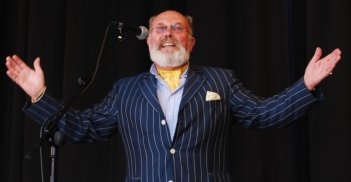SSM: A step forward that won’t please everyone
Ireland has come a long way over the past three decades; homosexuality was decriminalised in 1993 and now, 22 years later, the Irish people have the chance to legalise same-sex marriage on May 22nd.
The spokesperson for Ireland’s Catholic Bishops has said that the church may no longer perform the civil aspects of weddings if the upcoming referendum on SSM equality is passed.
As of now, a couple sign a marriage registration form directly after the wedding mass. However, this new move by the church will force couples to go elsewhere to complete the civil aspect of their wedding ceremony.
Sadly, this aggressively anti-LGBT stance is nothing new within the Catholic Church in Ireland. For decades, the legislator’s pen was guided firmly by the Church’s hand.

In 1988, the European Court of Human Rights decided the monumental case of Norris v. Ireland. Norris claimed that Ireland’s archaic criminalisation of certain homosexual acts was in violation of Article 8 of the European Convention of Human Rights. The ECHR found in favour of Norris, vindicating him after an eleven year legal battle with the backward-thinking Irish judiciary.
Fast forward 27 odd years and Ireland is a completely different place. On May 22nd, the electorate will go to the polls to vote in yet another hotly-debated referendum. We will decide whether or not same-sex marriage should be legalised in full.
For most of us, this is a non-issue; it is a simple matter of equality. Shouldn’t all citizens have the equal right to express love for one another irrespective of their sexuality?
[pullquote] “It would underline Ireland’s reputation as a tolerant and inclusive nation… [/pullquote]
When announcing the date of the referendum, Taoiseach Enda Kenny said that it would underline Ireland’s reputation as a tolerant and inclusive nation. Sinn Féin, Fine Gael and the Labour Party are all also in favour of a yes vote in the referendum. Sinn Féin’s Padraig Mac Lochlainn said, “Hopefully 2015 will bring another milestone in equality for our LGBT citizens.”
Cynically, you could say that all of the mainstream parties are simply tapping into the so-called ‘gay vote’, but that doesn’t seem to be the case here. Health Minister Leo Varadkar took the brave step of coming out as gay in a radio interview, bolstering the credibility of his party’s sincerity when it comes to LGBT issues. This is no token gesture.
The ‘no’ camp in Ireland, bought and paid for by the Catholic Church, continuously emphasises the fact that the ability to pro-create is a fundamental part of wedlock. Pro-creation is obviously something that LGBT couples cannot do, so this is an easy argument to make.
[pullquote] “If you don’t want a gay marriage, don’t have one. [/pullquote]
Bruce Arnold of the Irish Times makes the argument that same-sex marriages are not natural. He argues fallaciously that the original definition of marriage should not be altered by any law as to do so would counter-act the primal human desire to survive and perpetuate our species.
Arnold is wrong on two counts. Firstly, LGBT people will not change their sexual preferences if they cannot marry, therefore there are going to be the same amount of same-sex couples whatever the outcome of this referendum. Secondly, his argument that gay marriage is not ‘natural’ is somewhat contradictory, because there have been several well documented studies into homosexuality in animals. The last time I checked animals were also part of nature.

Conversely, some sectors of the left-leaning section of society believe that this referendum is no more than an attempt to enforce hetero norms on the LGBT community. Both of the arguments can be rebuffed by the following saying: ‘If you don’t want a gay marriage, don’t have one’. This referendum will not make gay marriages mandatory, it will just make them possible.
Unfortunately, there is no such thing as a referendum that is all-pleasing. No motion ever passed with 100% of the vote. There will be those who don’t want the referendum to pass, and those who believe it doesn’t go far enough.
Bishops can throw toys out of the pram all they want, but refusing to perform the civil aspects of weddings will just further isolate citizens who are falling out of touch with the Church’s teachings.
The most important thing, however, is that this referendum is going ahead in the first place. Ireland has come a long way in 27 years. If passed, the marriage equality referendum will at the very least be a step in the right direction.
Photo: Red Mum via Flickr
